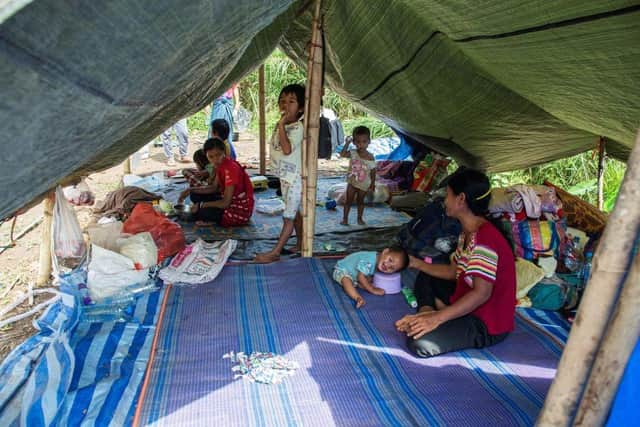Ukraine-Russia: Refugee numbers at highest-ever level, as UNHCR calls for peace effort
UNHCR, the United Nations Refugee Agency, said the trend could only be only reversed by a new, concerted push towards peace-making.
By the end of 2021, those displaced by war, violence, persecution and human rights abuses stood at 89.3 million, up 8 per cent on a year earlier and well over double the figure of ten years ago, according to UNHCR's annual Global Trends report.
Advertisement
Hide AdAdvertisement
Hide AdSince then, the Russian invasion of Ukraine – causing the fastest and one of the largest forced displacement crises since World War Two – and other emergencies, from Africa to Afghanistan and beyond, pushed the figure over the dramatic milestone of 100 million.


"Every year of the last decade, the numbers have climbed," said the United Nations High Commissioner for Refugees, Filippo Grandi. "Either the international community comes together to take action to address this human tragedy, resolve conflicts and find lasting solutions, or this terrible trend will continue.”
UNHCR said last year was notable for the number of conflicts that escalated and new ones that flared. A total of 23 countries, with a combined population of 850 million, faced medium or high-intensity conflicts, according to the World Bank.
Meanwhile, food scarcity, inflation and the climate crisis are adding to people’s hardship, stretching the humanitarian response just as the funding outlook in many situations appears bleak. The number of refugees rose in 2021 to 27.1 million. Arrivals climbed in Uganda, Chad and Sudan, among others.
Most refugees were, once again, hosted by neighbouring countries with few resources. The number of asylum seekers reached 4.6 million, up 11 per cent.
UNHCR’s UK representative Vicky Tennant said the overwhelming majority of people forcibly displaced remained either within their own countries or were hosted in ones nearby.
She said: “Millions of lives have been saved through the generosity of those countries neighbouring crisis zones, who have sustained access to asylum in the face of huge challenges. But countries further away must also step up and play their part – through international aid, resettlement and other pathways to safety, and by ensuring that their own borders stay open to those seeking asylum.”
Ms Tennant paid tribute to the warm welcome provided by many communities and families refugees arriving in Britain during the past year, especially from Afghanistan and Ukraine.
Advertisement
Hide AdAdvertisement
Hide Ad“They have opened their doors to refugees and shown that a proud tradition of sanctuary and welcome continues in Britain today,” she said.
“That same solidarity and compassion must also be extended to people fleeing war and persecution anywhere in the world, regardless of their nationality or how they arrive.”
Last year also saw the 15th straight annual rise in people displaced within their countries by conflict, to 53.2 million. The increase was driven by mounting violence or conflict in some places, such as Myanmar.
However, the report found the number of refugees and internally displaced people returns increased in 2021, returning to pre-Covid levels, with voluntary repatriation having surged 71 per cent, although numbers remained modest.
Comments
Want to join the conversation? Please or to comment on this article.